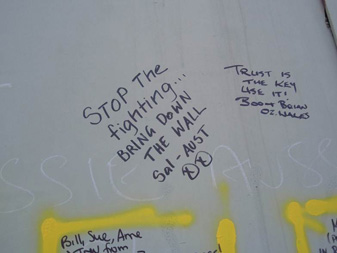Ruth Sabath Rosenthal’s full-length poetry collection FACING HOME and beyond (Paragon Poetry Press, 2011) includes and expands upon her chapbook Facing Home (Finishing Line Press), 2010, which I excerpted on this blog last year. Ruth’s clear and sharp-witted writing addresses themes of family alienation, Jewish heritage, and the hard-won wisdom of an older woman who’s had to learn to rely on herself. The poem below, reprinted by permission, captures the spirit of this collection, by way of some lesser-known details about the Jewish legend of Lilith. Visit Ruth’s website to learn more about her work.
Bad Apple
What anguish when Lilith figured out
her Adam was a die-hard prick, repeatedly
refusing to let her flower atop his stem.
From the get-go, he commanded she be
on the bottom. Wanting his seed, she was dutiful
wife, coy lover swallowing bile, biting her tongue,
bearing him sons, and yet, the stiff-neck refused
to soften his manner or change his position:
He wanted her always under his thumb,
kissing his feet, the ground he stood on. She revolted,
and under threat of God-awful wrath, took one hell
of a lover — a swain who liked her on top,
but said kids were not fit to live with.
She sided with him, decided to leave Adam,
against the wishes of three angels who warned
they’d kill off the hundreds and hundreds
of sons she expected to bear, if she carried
out her plan. She turned that around by conceiving
her own twist on their threat: She would kill all
the newborns she cared to — a diabiblical campaign
the angels condoned only after she swore to
spare those infants wearing a talisman inscribed
with the angels’ names. And furthermore,
she’d seek to demonize men by having her way
with them in the deep of sleep, turning each
into licentious pricks lusting to distraction,
perversion. As for women, she’d instruct each
to cease acting beneath men in any manner or form.
Her plan carved in stone, she bid Adam farewell,
but not before ribbing him unmercifully
about his dream of finding the perfect wife,
“a fit wife.” And likely he would, as one man’s poison
is another man’s pleasure, or so it is written.
